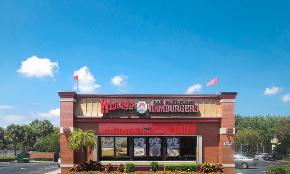 The core of the US economy is still fundamentally strong.” Thorpe tells GlobeSt.com.
The core of the US economy is still fundamentally strong.” Thorpe tells GlobeSt.com.
WASHINGTON, DC—Published reports from the UK say that in a case of “voter’s remorse,” a petition for a follow-up referendum on European Union membership has already garnered more than three million signatures. Regardless of whether the matter is put to a vote for the second time, the results of the so-called Brexit referendum have become apparent immediately. Some $2 trillion in value disappeared from global equity markets this past Friday, for example, the biggest daily loss on record, according to S&P Dow Jones Indices.
However, for the US at least, and in particular for US commercial real estate, there may be a silver lining in the cloud of uncertainty that has descended over the world’s economy. GlobeSt.com caught up with Kevin Thorpe, chief economist with Cushman & Wakefield, for his assessment of what to expect in the near term.
GlobeSt.com: Some reports have suggested that the aftermath of Brexit could be an economic negative for the UK and Europe, but a positive for US commercial real estate. What’s your take?
Kevin Thorpe: We have to be careful not to overreact. The terms of the divorce will be negotiated over the next two years. The best word to describe how the next six months will go is “uncertainty.”
In terms of the impact on the US, in the short term the main metric to watch will be the stock market. The biggest downside risk to the US economy and US real estate is really the equity markets; a prolonged downturn in the equity markets would absolutely do damage. So that’s something to watch.
On the upside, what this vote likely means is that the Federal Reserve is going to be more accommodative with monetary policy and keeping interest rates lower for longer. The other positive is the potential for a flight to quality, a flight to safety. So once the dust settles, we may see global capital pour into the United States even more aggressively, which would be driving interest rates down. I think it will be seeking core assets for the most part, primarily in the gateway cities. So you could see renewed upward pressure on commercial real estate values in the US.
GlobeSt.com: That would be quite a positive for real estate in view of some of the reports recently that values may have peaked. Would you say that the Brexit vote would be a unique driver in terms of creating a flight to quality, or were there other wild-card events that could have triggered that?
Thorpe: Over the next couple of weeks, I think you’re going to see what I’ll call a big fat pause in the capital markets in general. You’re going to see investors go into wait-and-see mode; they want to understand just how significant this event really is and what the global implications are. But it’s important to remember that the core of the US economy is still fundamentally strong. That’s why I think that once this volatility has died down and is repriced into the market, you’re going to see a pause followed by, potentially, a flurry of sales activity. The fundamentals of the economy are still healthy and there has been a tremendous amount of capital raised that wants to be deployed.
GlobeSt.com: The lift that this creates for investment sales activity—will this be a temporary effect?
Thorpe: Not necessarily. The uncertainty over the Brexit is going to affect Europe for quite some time, maybe even a couple of years. So there’s a question of how the other European nations are going to react. In the eurozone, there will probably be volatility in the headlines for quite some time, and what we’ve learned is that whenever there is global volatility, the US has a pattern of benefiting from that volatility. If this devolves into a messy situation and a eurozone breakup which happens quickly, then all bets are off. Every region would feel that. But as long as this volatility doesn’t turn into a widespread contagion, then there won’t be just a jolt in activity—there could be a prolonged period of strong sales activity, a prolonged period of very aggressive capital.

















 Copyright © 2024 ALM Global, LLC. All Rights Reserved.
Copyright © 2024 ALM Global, LLC. All Rights Reserved.